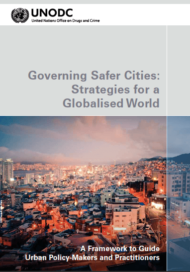Posted on 23 Mar 2018
by Prof. Dr. Arndt Sinn
Introduction: Organised crime as a global economic power
- Hand in hand with the globalisation of the economy, the liberalisation of trade
markets as well as the opening of the internal borders of the EU, organised
crime has become a transnational phenomenon. - Benefiting from access to new markets with different legal and cultural
conditions, organised crime has expanded its engagement in illicit trade
significantly. Organised crime groups engaging in illicit trade have become
very professional in exploiting the different legal frameworks and tax
regulations in various countries to their advantage. - Additionally, due to the new dimensions the world wide web brings to our daily
life and consumption behaviour and the increasing shift of trade markets to
the virtual space, national borders do not constitute an obstacle to illicit
trade anymore. The internet allows offenders to communicate and coordinate
anonymously and across borders. - These advantageous conditions have led to estimations by the OECD that
international organised crime annually generates around 870 billion US-Dollar,
which accounts for 1.5 percent of the global GDP (gross domestic product).
In Germany, for instance, the proportion of lawsuits prosecuting organised
crime with international links is as high as 80 percent for around 18 years –
with fluctuations of around 4 percent.



